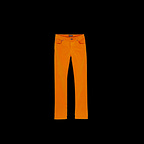I had been away from the podcast microphone for a while, but when I was given a chance to interview an astronaut I took it. The first ground I covered on the call was whether or not I could just call him Ed… and I can. So I’m on the first name basis with an astronaut now.
Roughly 550 people have been to space, of those 500, probably 20% have spent more than 100 days in space. Ed Lu is a rare breed. Just a reminder, we have 8 Billion people on the planet, and he is 1/500 who have left earth.
He has not been in space for 18 years, but he patiently answered all of my very specific questions that any kid who meets an astronaut should ask… like “Are there aliens?”
Ed Lu himself is unassuming, before the call he casually talked about how he was building a plane with his son in the garage. Like everything he says, he makes it sound so practical, like obviously he was building a plane in a garage… but how many people actually build planes in their garage? My guess is 500/8,000,000,000.
My original intent with this interview is not what I got from it. My original intent was to tie my questions back to the evolution of technology and where we are today. I feel we got some of that, but really this interview was more interesting because I didn’t accomplish my goal, I got to know an astronaut. I got to know how he thought. How obvious it was to apply to be an astronaut - Not because it was his life long dream, but because it was a curiosity.
Here are some of my favorite quotes, but I think that on Asteroid day, it’s amazing that I got to release a podcast interviewing an astronaut!!! And not just any astronaut… Ed Lu.
“That [training] flow normally takes about a year or so for a Russian cosmonaut to go through. And they pushed me through it in nine weeks.”
“[Being an astronaut] is a combination of a person who’s on a submarine, a person who’s a pilot and a person who’s a scientist—all rolled into one.”
“Putting things down on the table? You’ve got to stop doing that. It doesn’t work [in space].”
“There’s about 20,000 [near-Earth asteroids] that are known today, that are tracked. We do know that there’s between a half-million and a million that are larger than the one that hit Earth in 1908 that destroyed an area roughly the size of the LA Basin.”
“[The Large Synoptic Survey Telescope, or LSST] will have more observing capability to find and track asteroids than all telescopes combined.”
“We’ll be identifying a new asteroid about every week—one to two a week—that has a chance of hitting the Earth.”
“[Deflecting an asteroid] goes from being pretty darned easy if you have decades to pretty darned impossible if you’re down into months. Luckily, the tracking you get gives you decades.”
“You shouldn’t be that surprised if, in a few decades, we’re looking at colonies in space.”
“With the hundreds of millions of planets that we know to exist in our galaxy alone, I’d be shocked if there wasn’t life somewhere.”





